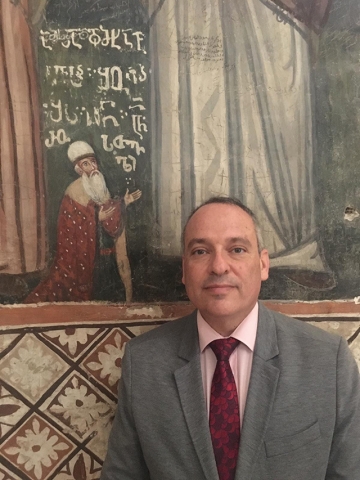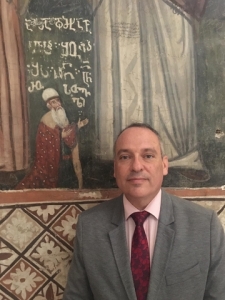Israeli Ambassador: We Want Georgia to Be among First Countries to Resume Tourism with Israel
EXCLUSIVE INTERVIEW
As part of the GT LIVE INTERVIEWS – “Ambassadors Go Live” series, Katie Ruth Davies, Editor-in-Chief of Georgia Today, has been speaking to numerous ambassadors about the way COVID-19 has impacted their countries, how their governments are handling the fallout, and what aid they have offered to others to help in the fight. On Monday, we spoke to the Israeli Ambassador to Georgia, Ran Gidor, who has been in Georgia since January this year and has in the past held positions in Cameroon, London and Beijing.
The latest COVID-19 statistics from Israel, which is 22,145 km² and has a population of 8.884 million, are as follows: Israel appears 43rd on the Worldometer coronavirus list. It has 2,801 active corona cases, of which 31 are critical. 299 Israeli citizens have died, and total cases currently stand at 18,268.
How have you and your Embassy coped and adjusted, and indeed helped Israeli citizens living in Georgia, during the pandemic?
We very quickly found ourselves dealing with humanitarian issues involving Georgian citizens, but primarily Israeli citizens. Georgia is considered a favorite destination for Israeli couples seeking surrogacy, every year an average of 300 couples choose to come here because in Georgia everything is above-board, perfectly regulated by the authorities, and legitimate. When the coronavirus crisis started, dozens of Israeli couples were stranded back home, having already suffered in trying and failing to conceive their own children, unable to fly to Tbilisi to meet the babies they had been waiting for. The Georgian authorities, like others, hermetically sealed the country, but in dealing discreetly and sensitively with these Israeli families, they were incredible- never would I have expected the degree of cooperation, flexibility and generosity we saw, and we are all hugely grateful.
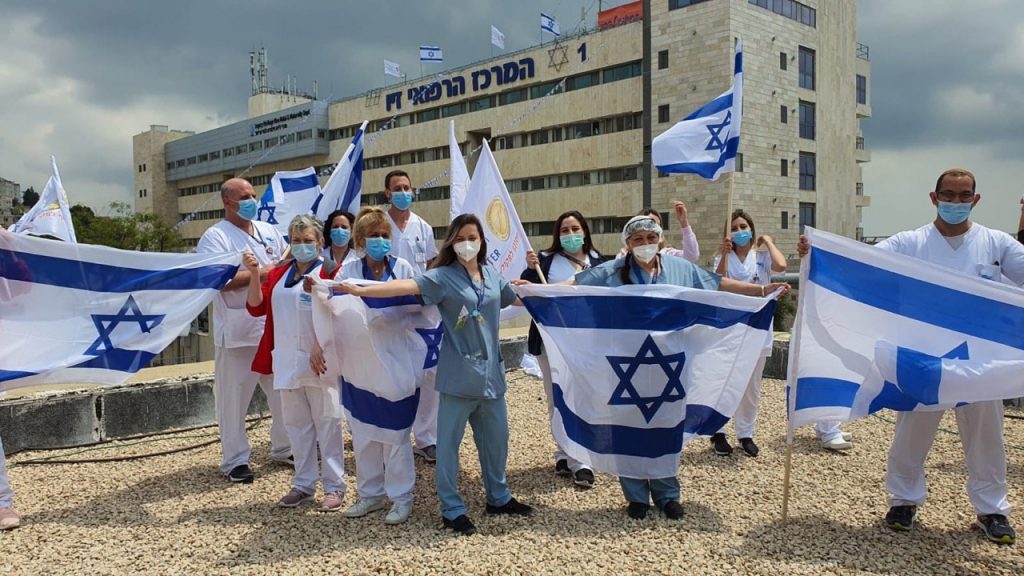
What steps have your country’s government and healthcare system taken to fight COVID-19 at home, and how effective do you think that fight has been?
We worked fast: suspending all flights from China on January 31, and by mid-March stopping all in-coming flights. The shutting down of shopping malls, dining venues, schools, etc. happened as it did elsewhere. Special about Israel is the fact we were the first country to use cyber-technology, normally used to identify external threats, to identify infections. It was quite controversial, as it hadn’t been designed for civilian purposes, and there were demonstrations against it. As a democracy, we had to find the right balance, and with compromises made, now the government is busy legislating it for use should such a pandemic happen again, guaranteeing a more systemic reaction and level of preparedness.
Israel is just a third of the size of Georgia, and because of our somewhat unfortunate geopolitical position in the Middle East, we don’t have land crossings with most of the countries that surround us. The only access is Tel Aviv International Airport. This made it easy to “seal” the country. Demographically, too, we are at an advantage, as our population is quite young and so less susceptible to the coronavirus.
If anything could have been done differently, I think it would be to keep more parts of the economy going- pick and choose rather than shutting down in absolute terms. Also, PCR tests should have been carried out on a wider basis right from the start. We were slow to react, as were most governments. We reached a peak of 10,000 PCR tests a day in April, and have kept it that way.
Tell us about Israel's work to develop a vaccine.
The Israeli economy is based on high-tech innovation and entrepreneurship. Several Israeli start-ups have developed innovative ways to prevent the spread of COVID-19.
In terms of treatment, one Israeli company won a EUR 50 mln grant from the EIB to develop treatment based on placenta-cell therapy. They have already announced a major breakthrough. The Biological Research Institute, normally carrying out highly confidential work for the military, identified eight antibodies to COVID-19 in the plasma of 19 Israeli patients with severe symptoms. These antibodies have already been tested on rodents, and they are ready to move on to human trials. This is the first of its kind in the world to identify so many antibodies that can eliminate COVID-19. [For more examples, see the live interview!]
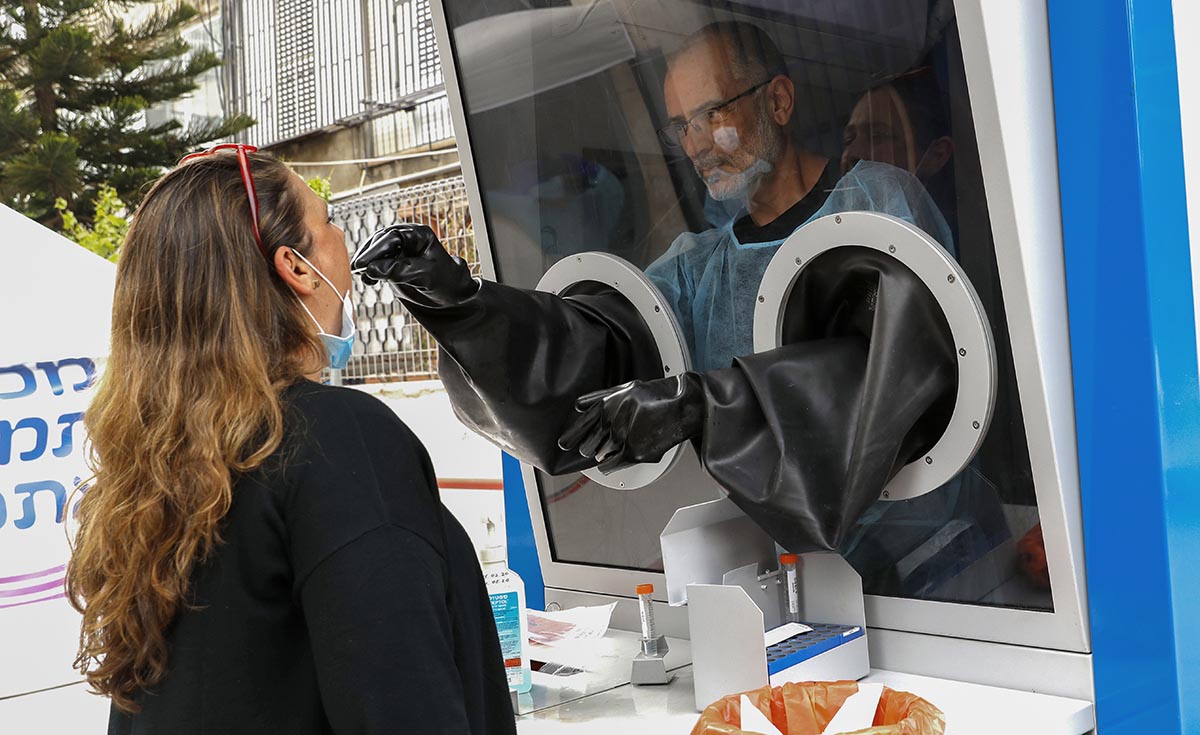
Tell us about the aid Israel has given others, such as through the Mashav Program.
Mashav is the equivalent of USAID or the German GIZ: an international development corporation under the Ministry of Foreign Affairs. Created 60 years ago, it’s responsible for training hundreds of thousands of people in developing countries worldwide. Israel was the 4th country to establish an embassy in Georgia in the early 90s, and it has already trained over 1500 women and men in a huge range of disciplines, from healthcare to education and special needs education, women’s empowerment to agriculture and irrigation- you name it! During the pandemic, training has continued, but online.
Israel is this year “72 years strong”. What is your country doing to support its citizens, especially those who lost their jobs due to the pandemic?
The Israeli government announced a package of measures: about 80 billion Israeli Shekels, ($23,159,673.60) equivalent to 6% of our GDP, to assist the self-employed, people who were unemployed even before the crisis, SMEs, the socially vulnerable, such as single parents, and to accelerate economic activity. In addition, civil measures were implemented, among them the deferral of tax returns and mortgage repayments, all designed to make it easier for ordinary people to get back on their feet and turn the wheels of the economy.
How do you see your country in 6 months’/one year’s time in terms of economic recovery? And when will you open to tourists?
According to major ranking agencies like Standard & Poor’s and Moody’s, Israel has an extremely resilient economy and, despite the fallout following the pandemic, Israel is expected to absorb the aftershocks. That said, the GDP is, for the first time in two decades, set to shrink, and we can expect a full scale recession. Yet, the World Bank and IMF predict that in 2021 Israel’s economy will register a 5-6% growth, which is enormous for a developed country, way above the usual 1.5 to 2%. Until last year, our growth rate registered 3.5% on average.
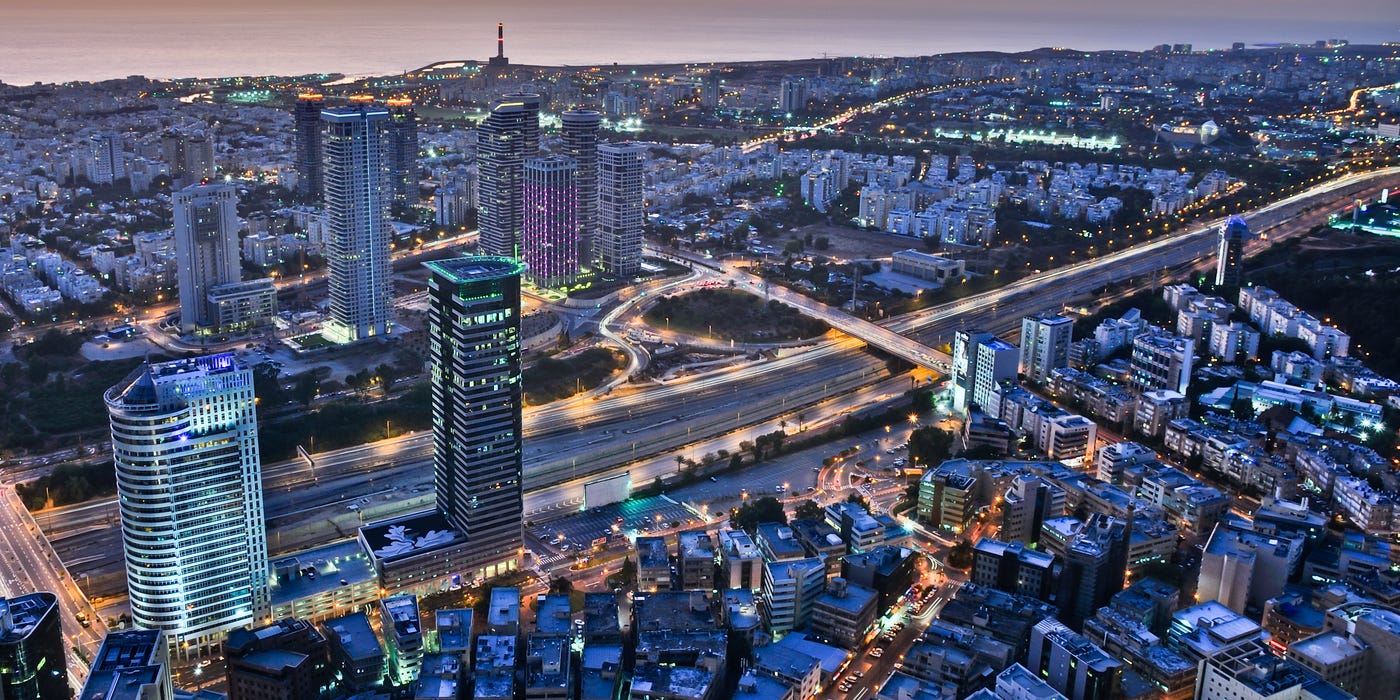
In terms of tourism, we were about to announce the resumption of flights by mid-June, early July. However, 10 days ago, we saw a spike in COVID-19 cases. Since 29 May, we’ve had a daily average of 100 infections. Now we know better how to control the spread, and the outbreak has been limited to identified localities, there’s no need to paralyze the economy. But reopening the borders to international tourists has had to be pushed back. The approach now is to select “green” countries with low infections, like Israel. Georgia is among the top four with whom we are ready to lower the bars.
[EDITOR’S NOTE: On Wednesday, the Georgian government announced Israel will unlikely be one of the first countries to open a safe tourist corridor with Georgia in the post-COVID-19 period, following consultations with health experts after the sudden deterioration of the epidemiological situation there. The date for opening the border with Israel has been pushed back at least two weeks. The number of confirmed cases of new coronavirus there had grown by 148 since Monday evening].
Tell us about the $22 bln investment pledged for renewable energy in Israel, and Israel’s work to protect its incredible biodiversity.
The Israel Ministry of Energy announced this ambitious plan to be implemented gradually until 2030. It will reduce air pollution by 93%, and greenhouse gases by 50% per capita. Solar installations will replace fossil fuels and supply 80% of the electricity during peak hours. 60% of the territory of Israel 72 years ago was desert, as it borders on Africa. But it is now the only country in the world in which the desert is shrinking. Until 6-7 years ago, we were in dire need of fresh drinking water, and to combat this, we developed a cutting-edge water purification system so that for the past three years, we’ve been able to export drinking and irrigation water to neighboring countries. We’re also about to launch the construction of the biggest water purification plant on the planet. All of that stems from survival, and it’s all about water management. Drip irrigation, which minimizes water wastage, and which is now used worldwide, Georgia included, was invented in Israel 50 years ago.
The northern part of Israel compares to Southern France/Italy and we know we cannot afford to diminish the nature we have. The cities of Tel Aviv, Jerusalem and Haifa are among the most crowded urban environments on the planet, but beyond those, we are seeing the reemergence of species we thought had disappeared.

Many publications, both in the US and Europe, have praised Georgia’s handling of the pandemic. From what you’ve read or heard, what’s your take on that?
The Georgian government took very effective measures. I’m not a public health expert, but from my conversations with Georgian civil servants and public healthcare experts and other diplomats, it’s clear that Georgia did the right thing by imposing restrictions so early on. For me, the single best thing the Georgian authorities chose to do was to give center stage to the healthcare professionals. In many other countries, Israel included, we saw mostly politicians night after night on TV. Rightly or wrongly, politicians are not well-liked or popular, especially not in times of crisis. Regardless of political ideology, you channel all your frustration towards politicians, and, rightly or wrongly, most people do not believe politicians. But when you see professionals, like the head of the Tbilisi Infectious Diseases Hospital, which Georgia put center-stage right from the start, it inspires confidence and trust amongst the population. To say something a little undiplomatic now, Georgian people are not renowned for their adherence to regulations, being quite fiercely independent-minded. What was striking this time, was the degree to which the population adhered to the public restrictions, which could only have come from a shared sense of confidence that the authorities were doing the right thing.
How do you see Georgia in 6 months’/one year’s time in terms of economic recovery?
The Georgian economy has been on a steady course towards prosperity, to becoming a middle-income country, for over a decade, so there are no revolutionary measures that need to be adopted. It needs to steady the course and play to its strengths. Just by opening its borders, it will be flooded with tourists. Last year, there were 200,000 Israeli visitors to Georgia, representing the single biggest group in the world visiting from a country that was not part of the former Soviet Union. This year, if not for COVID-19, we would have had close to 300,000 Israeli tourists. And Israelis are big spenders, so that’s very good for the Georgian economy!
We have over 100,000 Georgian-Jews who have become Israeli citizens, and they like to come back to visit family, for nostalgia, or because they have property, throughout the year, not only in summer. No government advertising campaign is needed: Israelis are lining up to come to Georgia!
Something else that needs to be done: Georgia has made huge strides in diversifying its economy to a sophisticated level compared to how it was in the 90s and early 00s. That trajectory has to be nurtured. We are in the process of establishing a bilateral Georgia-Israeli Chamber of Commerce, which, for the first time since the establishment of diplomatic relations 30 years ago, will provide an indispensable tool for businesses and investors in both countries. Gone are the days when people came to Georgia for the Khachapuri and Borjomi water. Georgia rightly aspires to be a modern, sophisticated economy, and for that it needs to adopt modern, sophisticated ways of marketing itself as an attractive investment destination.
Israel’s economy is based on innovation- this is something we’ve been sharing with our Georgian partners. In the past two weeks alone, we launched two online training seminars- with the Georgian Innovation & Technology Agency, and with a Georgian incubator called Touch, training young Georgian entrepreneurs, women and men in their early 20s, in something which is beautifully simple: how to take an idea and turn it into a profit-generating enterprise, from a tiny company with three employees to a larger employer. There’s an Israeli tech-hub in Tbilisi in BTU, where we offer computer skills training to students, all of whom are virtually guaranteed with jobs in Israeli start-up companies. It is part of our contribution to the renaissance of the Georgian economy.
Keep an eye on the Georgia Today facebook page to see who we’ll be interviewing next for GT Live Interviews, and keep up to date with all the latest news on georgiatoday.ge.
By Katie Ruth Davies
Photo: The Ambassador standing before the only known portrait of Shota Rustaveli, Georgia's national poet, at Jerusalem's 11th century Monastery of the Cross
